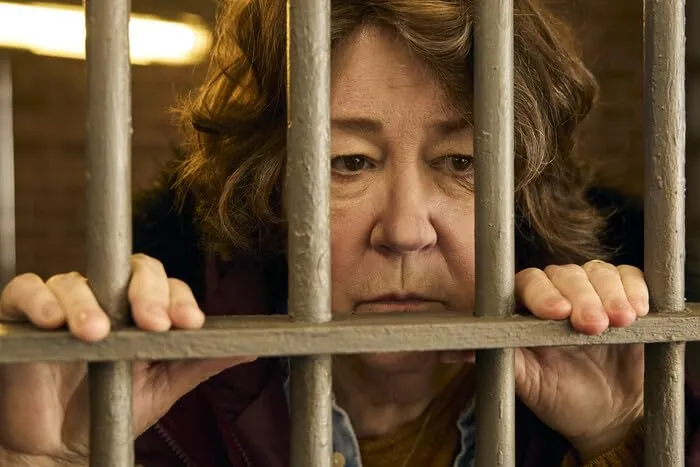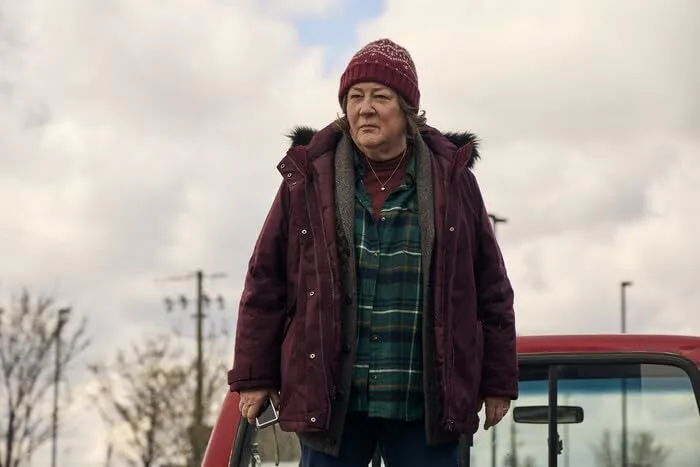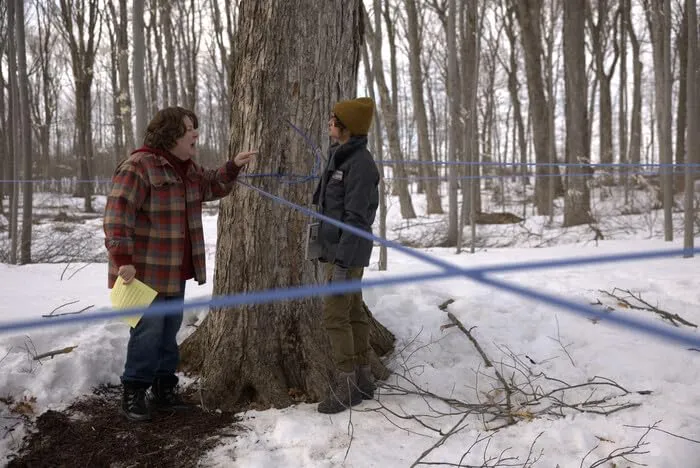Prime Video’s newest release, “The Sticky,” transforms an impossible true crime into a wonderfully inventive narrative. It is a deliciously dark comedy thriller. The series, which premieres on December 6, delves inside the freezing world of Quebec’s maple syrup business, crafting a ridiculous and captivating story.
Inspired by the true-life Great Canadian Maple Syrup Heist of 2011-2012, in which actual robbers took millions of dollars worth of syrup from strategic reserves, the show brazenly announces at the outset of each episode that this is “absolutely not the true story.” This humorous disclaimer sets the tone for a series that joyfully deconstructs reality while creating something uniquely amusing.
The original crime, which resulted in the disappearance of more than $24 million in maple syrup, was already unbelievable. Prime Video’s adaptation transforms that kernel of truth into a narrative about desperation, dignity, and an unexpected group of maple syrup bandits. Set in the early 2000s, “The Sticky” reimagines the heist not only as a criminal operation but also as a story of human redemption for its struggling characters.
Combining dark comedy with true crime elements, the series promises a maple-flavored adventure that is both absurd and deeply human – a uniquely Canadian story told with wit, tenderness, and a sense of mischief.
Sticky Situations: Plotting Beyond the Syrup
Imagine a bizarre heist that could only happen in Canada: taking millions of dollars worth of maple syrup. “The Sticky” transforms this unusual real-world event into a darkly comedic narrative about the desperate individuals attempting to steal it rather than the syrup itself.
The show reimagines the Great Canadian Maple Syrup Heist not as a simple crime but as a complex character study of underdogs pushed to their limits. While the initial robbery included millions of dollars in syrup, this series creates a deeply intimate and wickedly entertaining narrative.
At its center, the show follows three unlikely criminals: Ruth Landry, a tenacious maple syrup farmer striving to safeguard her property; Remy Bouchard, an underappreciated security guard at the maple syrup reserve; and Mike Byrne, a Boston mobster seeking atonement. Their objectives go far beyond monetary gain; this story is about dignity, survival, and fighting against systemic injustice.
The authors purposefully removed most factual elements from the original theft, leaving only the most enticing element: a big maple syrup robbery. Instead, they’ve created an underdog story in which the heist serves as a metaphor for personal revolt, with each character fighting internal and external conflicts. At the same time, they carry out their bold scheme.
By adapting a genuine crime into a character-driven dark comedy, “The Sticky” promises something far more complex than a basic theft story: it’s about people pushed to extreme lengths by exceptional circumstances.
Maple Mayhem: Unraveling The Sticky’s Narrative Tapestry
“The Sticky” spins a complicated plot that transforms a prospective maple syrup heist into a complex dance of desperation and survival. At the heart of this tumultuous adventure are three unexpected conspirators: Ruth Landry, a maple syrup farmer fighting to protect her land; Remy Bouchard, an underappreciated security guard; and Mike Byrne, a Boston mobster searching for his big break.
Remy, frustrated by being neglected, proposes a daring steal from the Quebec Maple Syrup Reserve, which sets off the narrative. He hires Mike, who has criminal ties and eventually draws Ruth into their bold plan. What begins as a simple plan to steal millions of dollars in syrup gradually devolves into something more complex: a fight for dignity, survival, and vengeance against systematic injustice.
Complications arise soon. A tragic error brings a dead body into the mix, attracting the attention of Detective Valérie Nadeau and Officer Teddy Green. The group must negotiate more dangerous waters, with Jamie Lee Curtis adding drama as a threatening criminal organization leader ordered to keep Mike in check.
The series moves dizzily, with six tightly packed 30-minute episodes. This short structure promotes speedy character development while keeping a sense of urgency. The show purposefully leaves various plots unanswered, teasing potential future seasons and keeping fans interested.
The plot balances dark comedy and true character moments, focusing on Ruth’s grief over her sick husband and Remy’s delicate relationship with his supportive but somewhat ignorant father. These emotional stakes transcend the theft from a straightforward crime story to a more complex examination of human motivation.
Finally, “The Sticky” is less about the syrup and more about the sweet taste of disobedience, with a narrative that will have audiences smiling and on the edge of their seats.
Syrup, Schemes, and Stellar Performances: Character Study
At the center of “The Sticky” are three characters who could have emerged from a Coen Brothers screenplay. Margo Martindale leads the cast as Ruth Landy, a maple syrup farmer whose calm determination conceals a vast reservoir of grief and resilience. She’s the character that refuses to be pushed around: a no-nonsense woman dealing with personal tragedy while battling to preserve her family’s history.
Guillaume Cyr’s portrayal of Remy Bouchard, the series’ most nuanced character, is extraordinary. Remy, initially a timid security guard still living with his father, exposes unexpected levels of ambition and unpredictable behavior. His bond with his loving but often ignorant father provides unexpected emotional depth, elevating what could have been a simple comedic character to something genuinely human.
Chris Diamantopoulos plays Mike Byrne, a Boston mobster his criminal friends constantly undervalue. His character injects a restless energy into the gang, hovering halfway between serious threat and comedic buffoonery. Despite his more unusual characteristics, Mike is remarkably three-dimensional.
The supporting cast contributes to the narrative’s elevation. Jamie Lee Curtis gives a scene-stealing performance as a dangerous criminal organization boss, bringing humor and a serious threat to her limited screen time. Her connection with Martindale is especially strong, implying squandered potential for more joint scenes.
What genuinely elevates these people is their surprising chemistry. They aren’t your usual robbery squad; they’re shattered people looking for dignity in a continuously ignored system. Ruth’s stoic grief, Remy’s silent desperation, and Mike’s frenetic energy form a humorous and devastating relationship.
Martindale, in particular, gives a masterclass in character acting. She imbues Ruth with such rich emotional complexity that viewers are compelled to enter her world. Her performance transforms what could have been a straightforward crime comedy into a meditation on grief, survival, and unforeseen connections.
The actors expertly handle the difficult tonal balance between dark comedy and true drama, making “The Sticky” both wildly amusing and unexpectedly heartbreaking.
Maple Country Mayhem: Crafting Quebec’s Criminal Landscape
A harsh, cruel setting where bureaucracy and criminality dance a delicate tango, “The Sticky” transforms Quebec’s maple syrup industry into a character all its own. Set in the early 2000s, the series highlights the distinct Canadian tension between small-town survival and systematic corruption.
The Quebec Maple Syrup Reserve is more than simply a location; it’s a metaphor for industrial control and economic power. The cold, working-class backdrop is more than scenery; it’s a pressure cooker of desperation and opportunity. Endless white landscapes reflect the characters’ emotional emptiness, while close-knit rural villages provide a claustrophobic sensation of restricted opportunities.
Subtle subtleties reveal cultural nuances: the bureaucratic villain Léonard Gauthier represents a uniquely Quebecois institutional power, frightening small farmers like Ruth with deliberate administrative intimidation. The landscape appears to whisper tales of quiet resistance, in which taking maple syrup becomes a form of disobedience against systematic oppression.
Director Michael Dowse and Joyce Wong create an intimate and enormous world. The small-town setting is reminiscent of the Fargo television series, which used local color to turn a potentially absurd idea into a riveting human drama.
Quebec emerges as more than just a backdrop; it’s a live, breathing ecosystem where maple syrup isn’t simply a product, but a way of life, a possible source of money, and a ticket to salvation.
Sweetness and Subversion: Navigating Comedic Criminal Terrain
“The Sticky” is a tonal balance masterclass combining dark comedy and genuine criminal passion. The series embraces the spirit of “Fargo” by translating potentially ludicrous events into human narratives that alternate between laugh-out-loud moments and legitimately stressful dramatic beats.
The show’s comedic core originates from the premise of reasonable individuals planning a maple syrup robbery. Yet underneath the superficial humor is a nuanced analysis of desperation. Ruth, Remy, and Mike are not portrayed as stereotypical buffoons, but rather as nuanced persons driven to unusual lengths by economic and personal demands.
Comedic moments arise naturally from character interactions rather than forced gags. A security officer scheming a multimillion-dollar syrup theft, a mafia feeling perennially underestimated, and a bereaved farmer ready to break bad – these scenarios generate laughter through their intrinsic silliness while keeping emotional honesty.
The directors masterfully strike a precise balance, ensuring that the comedy never destroys the narrative’s tension. Jamie Lee Curtis’ frightening yet comic supporting part exemplifies this approach: she’s witty and threatening.
Unlike many genre productions that focus on pure parody, “The Sticky” respects its characters’ intentions. The humor stems from truth, not mocking, a subtle approach that elevates the series beyond basic comedy to something more poignant and entertaining.
Finally, the show demonstrates that, when handled correctly, maple syrup may be used to explore complicated human emotions.
Sticky Endings: Where Syrup Meets Suspense
The season finale of “The Sticky” is a great balance of conclusion and purposeful doubt. While the immediate maple syrup theft plot concludes, the designers purposefully leave many narrative lines dangling, indicating a wealth of possibility for further investigation.
Ruth, Remy, and Mike’s complex strategy does not end with a clear victory or defeat. Instead, the ending celebrates moral ambiguity, reflecting the characters’ complex intentions. Detective Valérie Nadeau’s investigation creates enough unresolved tension to keep viewers guessing about the outcome.
The most intriguing part is that the conclusion does not bring perfect closure. Character arcs are left slightly open-ended, with each protagonist facing potential legal, personal, and emotional ramifications beyond the immediate narrative.
“The Sticky” presents a distinctly Canadian narrative that is equal parts humorous and unsettling for viewers looking for a criminal comedy that defies established norms. The series transforms an impossible-sounding premise into a nuanced investigation of desperation, survival, and the surprising friendships established under harsh circumstances.
Recommendation: Watch, but be prepared for an unpredictable voyage.
The Review
The Sticky
"The Sticky" defies expectations at every turn, changing an silly plot involving maple syrup theft into a poignant examination of human desperation. Margo Martindale's outstanding performance and a razor-sharp script that strikes a mix between dark comedy and true emotional depth transform this series from a strange notion to captivating television. The show's greatest strength is its ability to elicit strong emotions from viewers about characters operating under the most ludicrous conditions. "The Sticky" becomes more than another crime comedy by treating its strange narrative with true regard and nuance; it's a nuanced character study wrapped in the sweetest Canadian packaging. While not perfect, the series takes big chances that mainly pay off, resulting in a unique viewing experience long after the last episode.
PROS
- Outstanding ensemble cast with exceptional performances
- Unique, original premise that subverts genre expectations
- Brilliant dark comedy with genuine emotional depth
- Nuanced character development
- Innovative storytelling that balances humor and drama
- Rich cultural representation of Quebec
CONS
- Some narrative threads left unresolved
- Potential confusion for viewers unfamiliar with the real maple syrup heist
- Pacing might feel uneven in middle episodes
- Complex plot could be challenging for casual viewers





















































